Welcome to STYLE Canada‘s Boreal Book Club: a monthly meeting narrated by Erin Catto, (reviewer at Girl Well Read), for bookworms who’re looking to scour new pages. Since we aim to shine a spotlight on all things Canadian in life and style, beauty, and health and wellness, it goes without saying that every instalment of the Boreal Book Club will feature a Canadian author and their latest title. Be sure to use the hashtag #BorealBookClub to share with us on social!
https://www.instagram.com/p/CEzPGUugqXX/?utm_source=ig_web_copy_link
This Little Light by Lori Lansens takes place over a frenzied 48 hours in the near future (2023). Teenagers Rory and Feliza are on the run after they are accused of bombing their posh Californian high school on the night of the Virtue Ball. There’s a bounty on their heads and everyone is trying to track them down. Rory’s mom—an activist and lawyer—has been implicated in her daughter’s crimes where her dad—who left them for another woman—is cooperating with the authorities.
Right-wing Christians have gained the upper hand so abortion and birth control has been re-criminalized. Girls are expected to pledge their virginity and know their roles. Rory is looking for someone and something she can trust. She’s a smart girl who is not only cynical and scathing, but scared and emotional. What she writes is painful, intense, passionate, funny at times, and despondent.
https://www.instagram.com/p/CDR95OcHKxH/?utm_source=ig_web_copy_link
For a teen, Rory is intelligent and fiercely independent. She is an incredibly strong character both in her voice and actions. Rory is an urgent narrator—you can almost feel the keystrokes in her blog entries. Lansens captures her voice perfectly and the fever pace of the narrative is spot-on.
Remember: this novel only spans 48 hours, but it’s enough time because Rory writes about past events that give credibility to her theory of who is responsible for the bomb.
The plot is taut, tense, and timely. With the issues of reproductive rights, immigration, religion, and sexuality in the spotlight, I couldn’t help but think of The Handmaid’s Tale and how although this story is set in the future, the topics are relevant today. What Lansens achieves in This Little Light is nothing short of extraordinary.
And that ending… wow! I can’t give anything away, but it was a sucker punch right to the gut. This Little Light burns bright. Congratulations, Lori.
Scroll to read Erin Catto’s exclusive interview with Lori Lansens about This Little Light.
https://www.instagram.com/p/CD1ype2nMN6/?utm_source=ig_web_copy_link
EC: How many hours a day do you write? Are you a pantser or a plotter?
LL: When I wrote my first novel Rush Home Road, I was expecting my first child. Time felt fluid and unregulated. Many days I’d look at the clock, finding that eight hours or 10 hours had passed, and I’d hardly left my desk. By the time I was writing my second book, The Girls, I had two babies and there were no more eight-hour writing days! I set a goal of six hours a day, accomplished during naps and after they went to sleep at night, and then, eventually, I had a little more time when they were in school. I still write on average six hours a day. When I can, I write for longer.
I am a plotter! I know the end of the story and the broad strokes of the plot before I sit down to write.
EC: How did you come up with the concept for This Little Light?
LL: I started to write this book in the summer of 2015. It was an angry and frightened reaction to the emergence of Donald Trump on the political stage, and specifically to the loud and enthusiastic support from the Christian Right, in spite of the fact that the man’s misogyny, racism, anti-immigration, and anti-LGBTQ sentiments were on full display. When powerful people believe that God is on their side in the oppression of other people it’s terrifying, and that’s the territory I wanted to explore. Beginning this book was a way to harness the fear I felt then, and it was also a way to protest.
Rory Miller, our teen-aged protagonist, has been raised in the Christian faith in a wealthy, gated community in Calabasas, California. As she enters womanhood, Rory questions the hyper-consumerist world around her in this very near-future (2024) America where two terms (and more) under an unsuitable and dangerous leader, supported by Christian fanatics, has completely reshaped the country.
In Rory’s world, the patriarchy is stronger than ever, abortion is illegal, and purity balls—where a young girl pledges to her father to save her virginity until marriage—are common. Rory’s filled with anger at the injustice she sees around her, and outrage at the religious hypocrisy she’s grown up with. Her parents, immigration lawyers, gave her a social conscience but she didn’t always know what to do with it. Now, as she’s being hunted, wrongly accused of a planting a bomb at her school (plus other terrible crimes!), and is in hiding, she’s forced to confront her own hypocrisies and take a hard look at the world around her.
It was never my intention to predict the future but to construct a near future, imagining how the country might be changed under a leader like Donald Trump—the hyperbolic religiosity, the racism, the continued oppression of women and snatching back of hard-won rights, the shocking vigilantism, the anti-immigration measures leading to utterly tragic lives for the undocumented. The near future world I was writing about, as time went on, felt less like the allegory I first imagined and closer to real life than I could have dreamed.
Thanks Julie! I started writing this book before Trump was elected. I was cynical and frightened about what the near future might look like. To me it looked like This Little Light. Today I have hope! https://t.co/C5Z1Yey8Ac
— Lori Lansens (@lorilansens) October 7, 2019
EC: This is your first foray into young adult fiction (YA). Was your writing process any different?
LL: When I began to write This Little Light, I turned over the words speculative fiction, dystopian fiction (but its set just a few years into the future) and allegory, but I never thought YA. I didn’t imagine that the characters ages made the book YA in the same way I never considered The Catcher in the Rye as a specifically YA novel, even though there is an obvious crossover audience.
Before I started work, I reread The Catcher in the Rye—I was interested in that voice of angst and felt that angst had to be delivered in a first-person narration in This Little Light too. I felt that Rory’s voice, the predicament she’s in, the questions she’s asking—are universal questions about power, privilege and finding footing in a confusing world. I didn’t think of it as having an age-specific audience.
My novel The Girls, about conjoined twins, is sometimes classified as YA. I didn’t imagine I was writing specifically to a young adult market with that book either. My recent book The Mountain Story is about an 18-year old boy, but I’ve never seen it classified as YA. Ultimately, I’d love to imagine that young adults as well as older adults might find my stories compelling irrespective of the ages of the main characters.
EC: Do you have a favourite character in This Little Light?
LL: Rory Miller is in many ways the manifestation of my own teenaged voice. I was raised Catholic in a small farming community in southwestern Ontario. Our parish priest molested little girls in that community for decades. He pled guilty to 47 counts of child molestation, but we know there were many more. We didn’t know the extent of it then—well, some girls did. We called him Father Feeler because he was so touchy feely with all of the girls, openly, in plain sight. Girls whispered. In middle school his intentions became clear, but it would be years beyond that before the truth of his assaults became public.
That huge betrayal of a religious leader caused me to leave my faith and lifted the veil on the hypocrisy that had been there all along. Seeing Donald Trump supported by the Christian Right trigged all of that confusion and outrage for me. So that’s where the voice of Rory Miller comes from. Favourite? I don’t know if I can say Rory is my favourite character as I have some affinity for all of them (even the villains) but Rory and I are certainly inextricably bound.
EC: What character did you sympathize with the most and did that change while writing the book?
LL: I suppose, because this is a first-person narration, that I felt the most sympathy for Rory and her “co-accused” Feliza. In general, I feel sympathetic and compassionate toward our youth today because they are so often maligned and blamed for being products of a world they did not help create!
I had two teenagers at home while I was writing This Little Light and having teenagers constantly around directed me to the narrative approach and the language. I turned to social media, which had already begun to affect the way people tell their stories and the speed at which we share them. I wanted to reflect that in the story-telling.
Rory, a blogger, tells her tale in real-time, while also reflecting on throwbacks and memories that shaped her life. (Rory’s language speaks to the many dialectical shifts that have become common because of social media; short forms, informal speech, acronyms, concocted words, casual cursing, omitted words.) In the end, because Rory has compassion for others—even for the friends who betrayed her—I felt a certain sympathy for them too.
https://www.instagram.com/p/CFh-Uw-nAKl/?utm_source=ig_web_copy_link
EC: Did any minor characters become major characters over the course of the novel?
LL: My approach to the novel demands that I know the ending—and the story in broad strokes—before I begin. For me, the ending is the point of the story and the reason for writing it in the first place. For that reason—because I know a character’s general arc before I begin and there is some kind of precision to following the arcs—I’ve never had a minor character become major or vice-versa.
EC: What was the hardest scene to write?
LL: Although I knew the ending of the story before I began, and I knew exactly how I would write it, it still took me weeks to sit down and finish the final pages. It’s been the same with each book. I suppose, as much as anything, writing the ending of a book is in some way biding adieu to an author’s sense of purpose. I’m always sad and reluctant to finish the final pages and say goodbye to all of these characters I’ve lived with daily and who exist for me in a very real way.
EC: If you could tell your younger self something about writing and becoming an author, what would it be?
LL: I started writing when I was a child and have felt driven to the point of obsession to write fictional stories to express my own inner landscape in one way or another for as long as I can remember. I’ve written plays, short stories, screenplays, and novels with varying degrees of success. I remember when I was young, being told “write what you know.” I thought that was the most simplistic and restrictive advice a writer could receive and yet it still permeates the culture and did handcuff me in the beginning.
I would tell my young self, as I might tell any young writer now: “Write what you feel passionately about in whatever guise that takes, through whatever characters best expresses that passion. Read, research, write with compassion, and let your imagination take flight.”
EC: What are you working on now?
LL: Recently I made a return to screenwriting, a much different but exciting and satisfying way to tell a story. I wrote a pilot script for a TV series about reincarnation called Before and have sold the option to Sony. I’m also working on a series called Harmonie House—with a close friend who also happens to be an ex-prison chaplain—about a transitional home for female offenders being released into a world that is unrecognizable as the one they left behind. I have another novel brewing, of course, and look forward to diving into it soon!


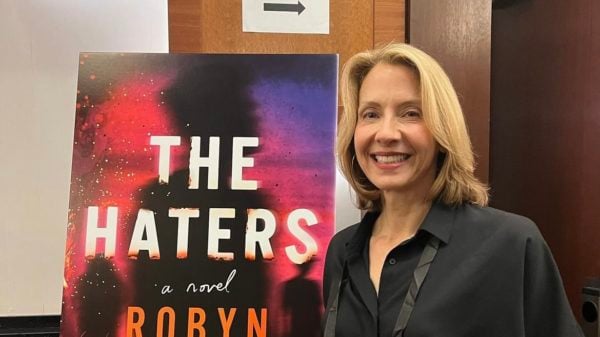
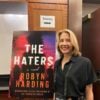
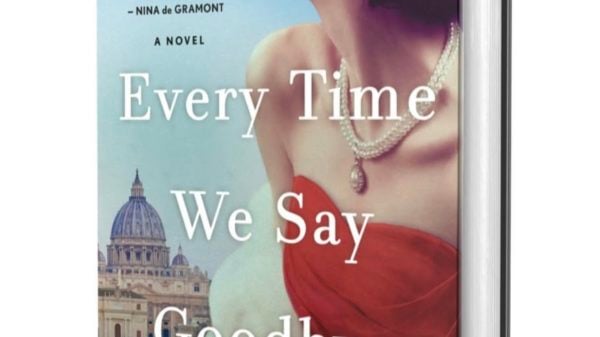
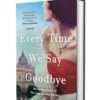
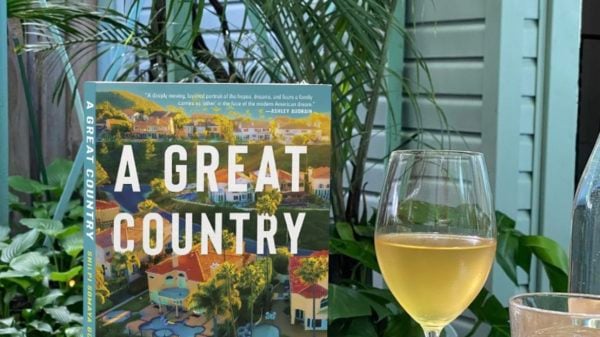
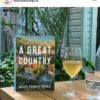
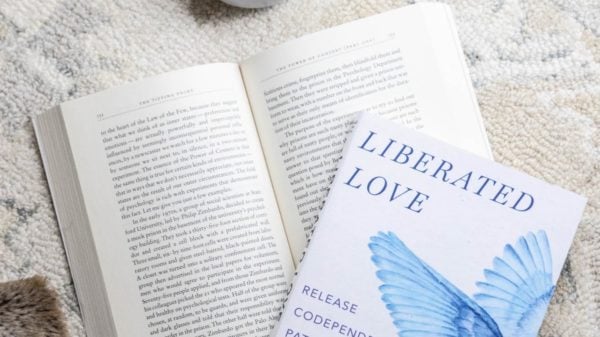


You must be logged in to post a comment Login